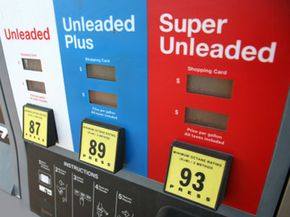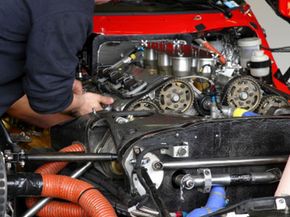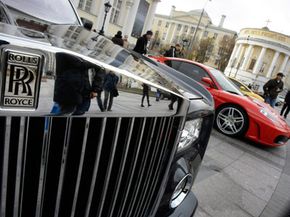With gas prices fluctuating and the economy in an unpredictable state, drivers are constantly looking for ways to save money at the pump. The most obvious way to get a little savings is to opt for regular unleaded gasoline and instantly save around 20 cents per gallon over the premium stuff. In most states premium gasoline is defined as gas having an octane rating of 91 or 92 -- regular typically has an octane rating of 87. But will using a lower-grade gasoline actually hurt your car's engine? This is an especially important question if you own a luxury car, because the manufacturers of most luxury vehicles recommend premium gas.
Advertisement
The answer to this question is somewhat complicated, but we'll start with the easy part. The first thing you should do is check your owner's manual. It's entirely possible that the manufacturer of the car doesn't even recommend premium gas. According to USA Today, some luxury cars from Ford and GM, such as the 2009 Lincoln MKS and the Cadillac STS, have been specifically manufactured to use regular unleaded fuel. If your car happens to be one of these examples, not only will you get no advantage from using premium fuel, but it may actually be harmful to the car's engine in the long run.
Here's another helpful hint: If your car does take premium, look to see whether the manufacturer "recommends" premium fuel or if it "requires" it. If it's only a recommendation (as it will be in most cases), you can safely use regular unleaded fuel; however, you may take a small hit on performance. We'll discuss the topic of performance in a little more detail later within this article. If premium unleaded fuel is a requirement, of course, you have to pay the extra money for premium fuel every time you fill up. This is because the car's engine is precisely tuned for that grade of gas.
High-octane gas isn't necessarily better than regular grade. It isn't somehow more pure and it doesn't go through a superior refining process. It doesn't even keep your engine cleaner, as some people seem to believe. Premium fuel is just gas that contains a mixture of hydrocarbons that are slightly less combustible than those found in lower octane gas. This might seem odd, since cars use internal combustion engines that rely on the combustibility of gasoline to make them go. So, why would you pay extra money for gas that doesn't ignite quite as well as less expensive gas?
The answer has to do with the way in which expensive high-performance engines, the kind that you often find in most luxury cars, are manufactured. Find out why that matters on the next page.
Advertisement


